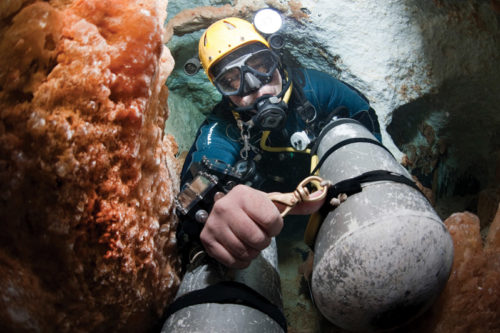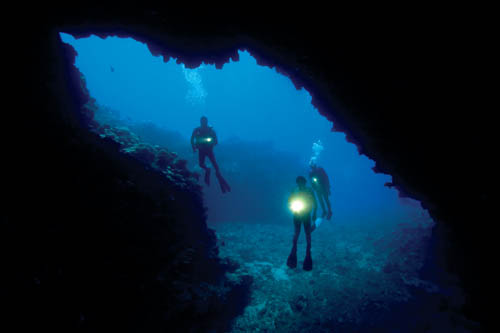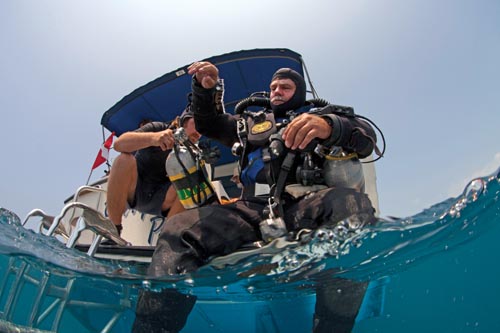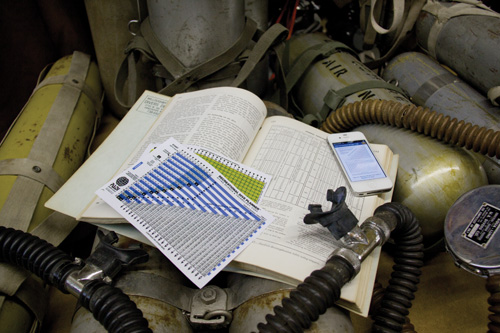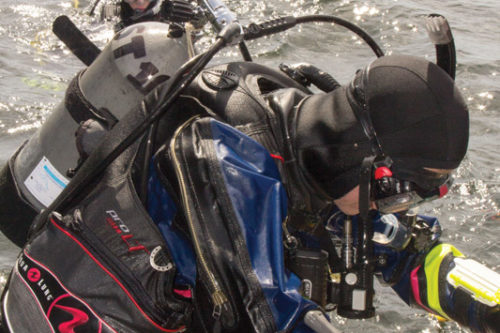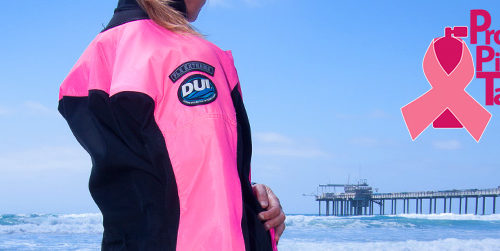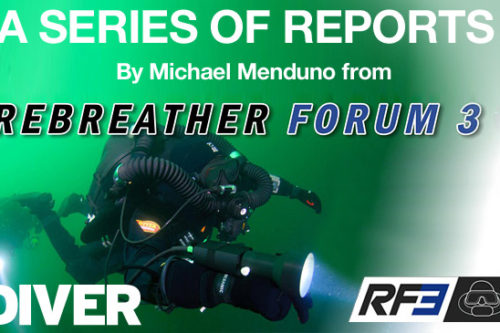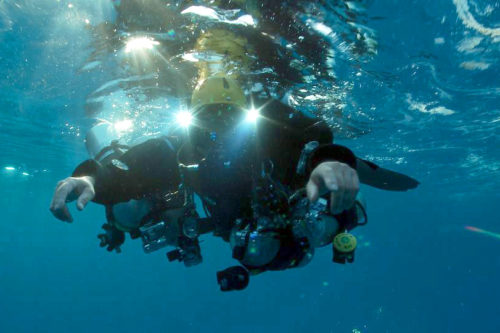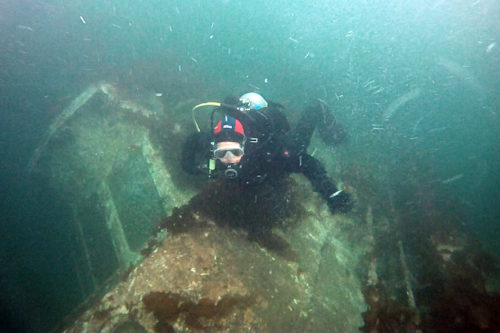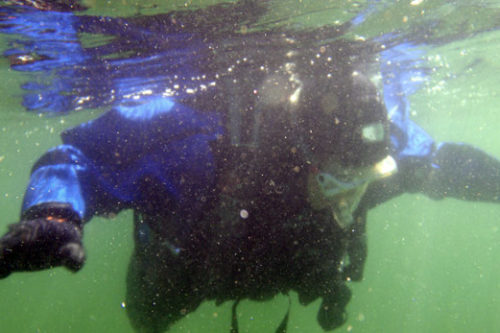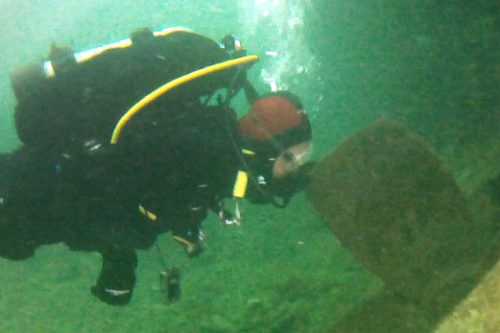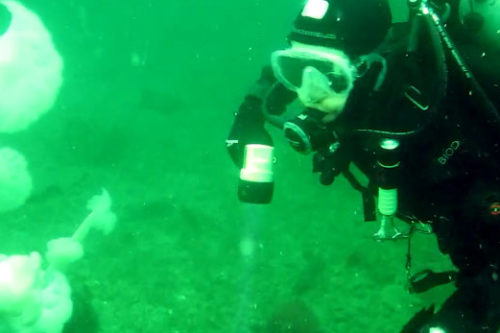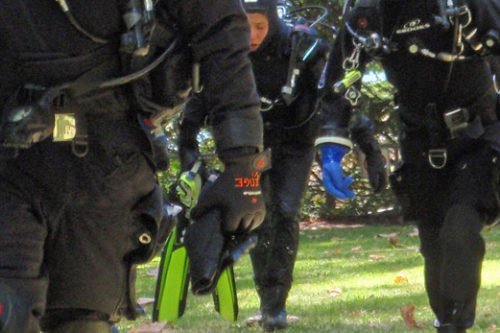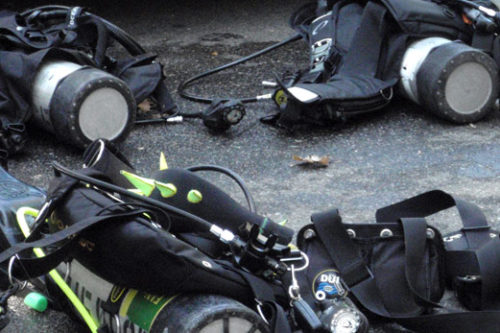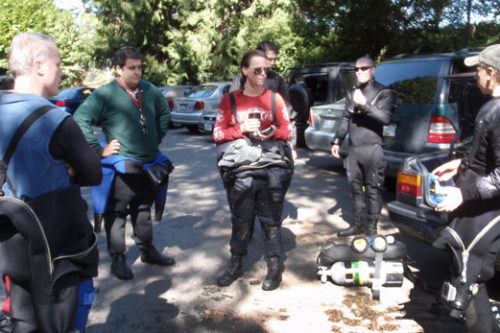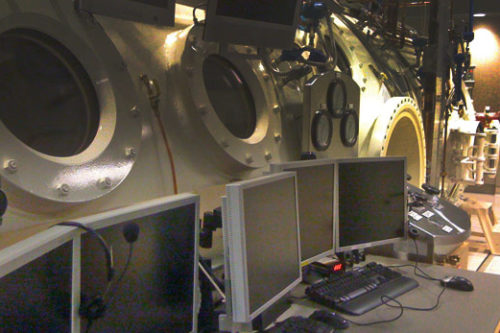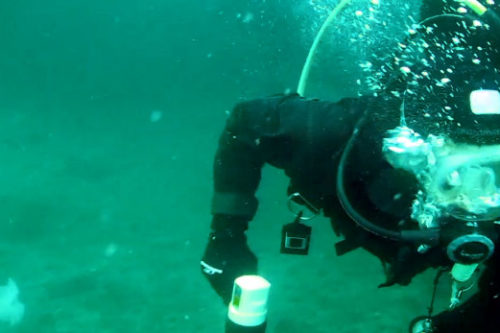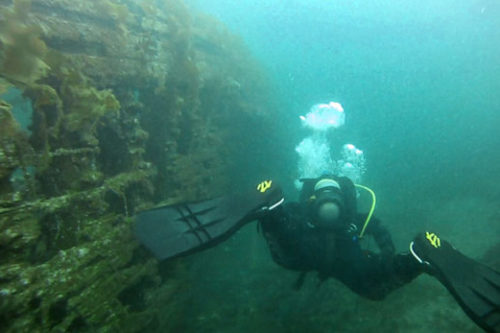Tag: diving medicine
The Mind Games of Diving Part 2
- DIVER Editorial
- 9th September 2014
By Dr. David Sawatzky Cave diving is a very unforgiving activity. You have to keep track of a large number of variables, concurrently. If you make a mistake or lose track of one of these variables, you will very likely die. There is very little margin for error. In …
Read MoreThe Mind Games of Diving
- DIVER Editorial
- 4th August 2014
By Dr. David Sawatzky Diving is an activity with some degree of real risk. You can get hurt while diving and you can die. You should have some degree of anxiety and apprehension when you are diving. This ‘appropriate’ level of arousal is reasonable, normal, healthy and actually reduces …
Read MoreLosing Your Head
- DIVER Editorial
- 30th July 2014
We sincerely hope you don’t, but our intrepid contributor, Stephen Weir, has taken steps just in case, and he’s not alone Text by Stephen Weir If at some point in the future someone who is not my dentist gets up close and personal with me and they see my …
Read MoreRebreather Fatalities
- DIVER Editorial
- 29th April 2014
Statistics show that almost always the cause is diver error By Dr. David Sawatzky In the last column I outlined how rebreathers work. There are many brands available and more coming on the market though the basic concepts for all of them are the same. Rebreathers are complicated. There …
Read MoreDive Tables and Decompression Models
- DIVER Editorial
- 15th November 2013
Dive industry pro Bret Gilliam offers the historical perspective The first research work in decompression physiology was not directed at scuba divers. Records from 1841 show that construction workers working at elevated pressures in either caissons (water-tight boxes inside which workers did construction underwater) or construction tunnels beneath rivers …
Read MoreHernias: Issues for Divers
- DIVER Editorial
- 30th September 2013
By Dr. David Sawatzky There are many different kinds of hernias. A hernia is the protrusion of an organ or its fascia through the wall of the cavity that normally contains it. Some hernias are very common and some quite rare. Each has a different implication for the diver …
Read MoreCan diving benefit the health of breast cancer survivors?
- DIVER Editorial
- 13th July 2012
Project Pink Tank is on a mission to get to the bottom of it. Text by Lisa Sonne More than 400 scuba enthusiasts, including open water, advanced, technical, and instructor level divers, are participating in “Project Pink Tank,” a multi-phase investigation into the relationships between scuba diving and the …
Read MoreRebreather diving: ‘Killing Them Softly’
- DIVER Editorial
- 9th July 2012
Second in series of reports on Rebreather Forum 3 by Michael Menduno. Dr. Andrew Fock, head of hyperbaric medicine at The Albert Hospital in Melbourne, Australia, himself an accomplished rebreather diver, took the RF3 stage Saturday morning with an important and sobering presentation on the risks of rebreather diving, …
Read MoreDeeper documentary review
- DIVER Editorial
- 4th June 2012
Most divers won’t descend below 130 feet (40m) though diving deeper is very appealing to many of us, myself included. It opens up new territory: deeper wrecks, caves, walls, blue holes, and for others it’s a way to conduct research or make a living. But for some it’s …
Read MoreEpilepsy/Seizures and Diving
- DIVER Editorial
- 17th January 2012
Diving Medicine By Dr. David Sawatzky A seizure is a sudden surge in electrical activity of the brain that alters how an individual feels or acts for a short period of time. In a classic ‘grand mal’ seizure a person looses consciousness, all of their muscles contract for up …
Read MoreLOC While Breath-Hold Diving
- DIVER Editorial
- 17th January 2012
Diving Medicine By Dr. David Sawatzky In this column we will look at the breath-hold diver who suddenly looses consciousness in relatively shallow water. These individuals often die from drowning. This phenomenon has been called ‘shallow water blackout’ but the term should be avoided – it’s confusing. Initially shallow …
Read MoreCoughing While Diving
- DIVER Editorial
- 17th January 2012
Diving Medicine By Dr. David Sawatzky Frequently, I receive reader questions. The following (edited) enquiries raise several issues of interest. Does Nitrox Have a Taste? Should Nitrox taste any different from regular air? I’ve noticed a difference. Air is odourless and tasteless in contrast to Nitrox, which I found …
Read MoreHigh Pressure Neurological Syndrome
- DIVER Editorial
- 17th January 2012
Diving Medicine By Dr. David Sawatzky In the last two columns I reviewed inert gas narcosis. High Pressure Neurological (Nervous) Syndrome (HPNS) is a similar problem that is experienced on deeper dives. It is a difficulty that recreational divers will never experience but advanced technical divers are increasingly performing …
Read MoreWhy Do I Need to Pee Every Time I Dive?
- DIVER Editorial
- 17th January 2012
Diving Medicine By Dr. David Sawatzky Every diver knows that when they go diving they need to pee. They also know that any cold water diver who claims never to have peed in their wetsuit is either lying or has logged very few dives. Finally, it’s fair say that …
Read MoreDehydration and Diving
- DIVER Editorial
- 17th January 2012
Diving Medicine By Dr. David Sawatzky In the last column I talked about the reasons urine production is increased while we are diving and what we can do about it. In this column I will continue that discussion by looking at other reasons divers are almost always dehydrated during/after …
Read MoreSports drinks: You Can Drink and Dive and It Can Help
- DIVER Editorial
- 17th January 2012
Diving Medicine By Dr. David Sawatzky In any discussion on dehydration, the topic of electrolytes must come up. So what are electrolytes? In Stedman’s medical dictionary an electrolyte is defined as “any compound that, in solution, conducts electricity and is decomposed by it; an ionizable substance in solution”. Ions …
Read MoreIs diving addictive?
- DIVER Editorial
- 17th January 2012
Diving Medicine By Dr. David Sawatzky All of us enjoy diving or we would not be doing it. Often we feel better when we are diving. A subset of divers seem to really enjoy diving deep on air. Is diving addictive? Narcosis is a fascinating topic and supports the …
Read MoreFatalities: Inexperience a Big Factor
- DIVER Editorial
- 17th January 2012
Diving Medicine By Dr. David Sawatzky Every year approximately 100 people die in North America while diving, and another 100 die while diving in the rest of the world. Diving is a relatively high ‘risk’ activity. By that I mean there are many ways in which you can be …
Read MoreBuoyancy Control- It’s An Inside Job
- DIVER Editorial
- 17th January 2012
Diving Medicine By Dr. David Sawatzky In the last column I looked at diving fatalities and noted that poor buoyancy control was a significant factor. Buoyancy control is by far the most difficult skill to master in diving and the easiest one to lose. Therefore, in this column I …
Read More
